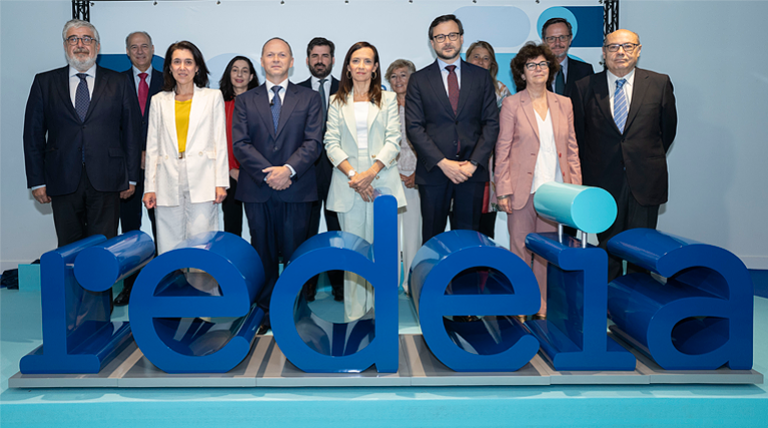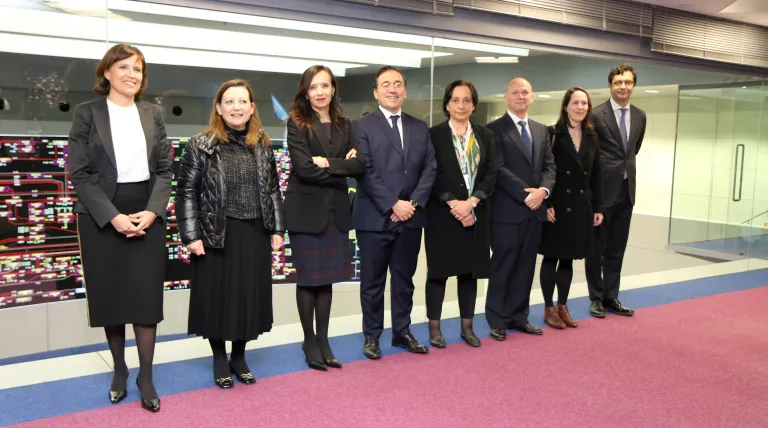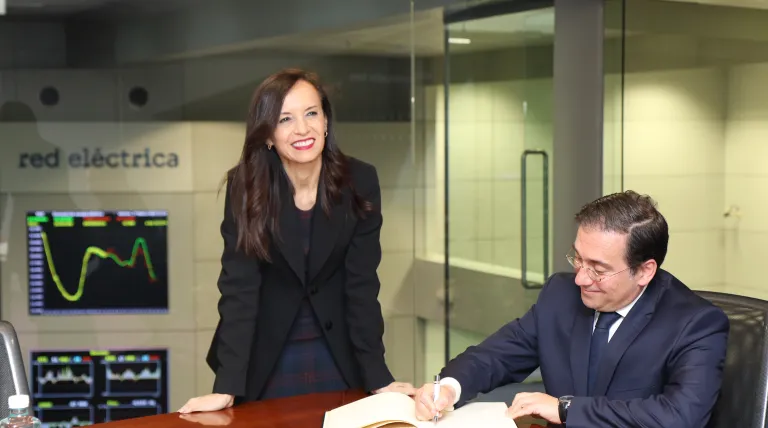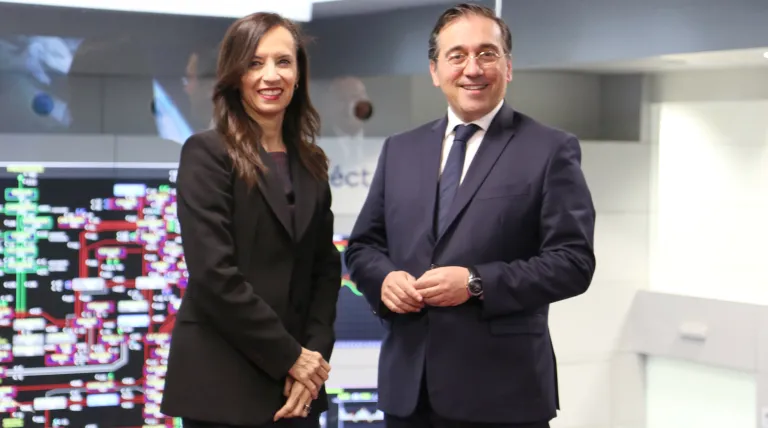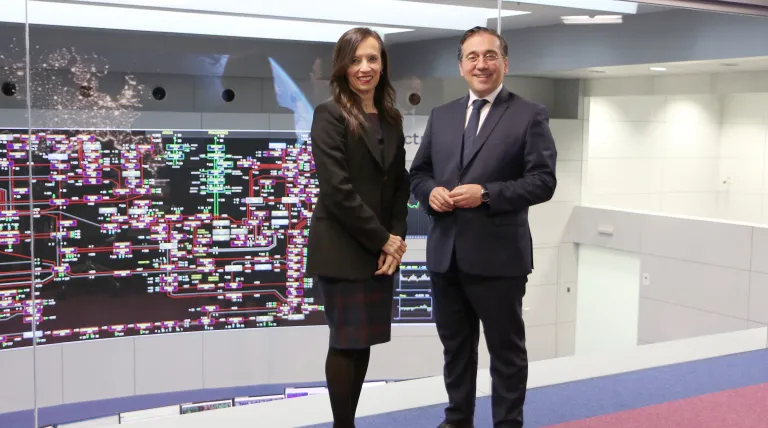We are a global operator of essential infrastructure
The Minister of Foreign Affairs has visited the Red Eléctrica Control Centre to see first-hand how the Spanish electricity system works.
The Minister for Foreign Affairs, European Union and Cooperation, José Manuel Albares, today visited the head offices of Redeia, a global operator of essential electricity and telecommunications services, and met with its Chairwoman, Beatriz Corredor, and its CEO, Roberto García Merino. During the visit, he was able to learn about the Company's role as the backbone of Spain's green transition and digital transformation.
Mr. Albares visited the Electricity Control Centre (CECOEL) where the minister saw first-hand how the electricity system is operated in real time and how renewable energy is integrated into the system with the maximum guarantee and security. This work, which Red Eléctrica, a Redeia company, carries out through the Control Centre for Renewable Energies (CECRE), has meant that so far this year more than 50% of Spain’s generation mix has come from renewable energy sources.
The minister showed an interest in learning more about the challenges faced by Red Eléctrica to successfully undertake the green transition and, specifically, in the projects it is carrying out in the international sphere, including electricity cross-border connections with our neighbouring countries and, in particular, the future interconnection with France across the Bay of Biscay.
This infrastructure – whose permitting process is being finalised in both countries and for which the engineering, manufacturing and construction contracts have recently been awarded - will increase the interconnection capacity with France from the current 2,800 MW to 5,000 MW, which will help achieve the targets regarding decarbonisation and the fight against climate change; an aspect that is which is essential for the energy transition.
Beatriz Corredor, Chairwoman of Red Eléctrica, pointed out that “This is undoubtedly a key project for Spain to move away from being an energy island and move closer to the interconnection targets set by the European Union”. Currently, the Iberian Peninsula has a level of interconnection with the rest of the European electricity system that stands at 2.8% with respect to installed generation capacity, a figure that is still far from the target set by the European Union of 15% by 2030 for each country.
For his part, Minister Albares stressed the importance of these cross-border connections, both from an economic and strategic point of view, and expressed his support for the global infrastructure operator and the group’s Chairwoman in their contribution to moving forward in this area. The Foreign Affairs Minister emphasised that “Spain has been at the forefront of Europe in offering solutions to the serious energy crisis caused by Russia's fossil fuel supply cuts to Europe and the aggression against Ukraine. The proposed solutions were subsequently adopted by the European Commission”.
Ms. Corredor and Mr. Albares also commented on the activity of the rest of Redeia's subsidiaries, namely Reintel and Elewit, which is the Company’s technology platform, with special emphasis on the work the group is carrying out in Latin America through its other subsidiaries, Redinter and Hispasat.
Hispasat, which is Redeia’s satellite telecommunications operator present in Mexico, Colombia, Peru and Brazil, launched its new satellite ‘Amazonas Nexus’ on 7 February, which, incorporating the latest technologies, will provide satellite coverage to Greenland, the Atlantic corridor, the United States and South America and will contribute to the achievement of the subsidiary's 2020-2025 Strategic Plan.
Redinter, which is Redeia’s company responsible for the international electricity business, has been present in Latin America since 1999, operating transmission grids in Chile, Peru and Brazil. In Brazil last year, it acquired new high-voltage lines together with its Colombian partner, Grupo Energías Bogotá, which help it become the fifth largest electricity transmission company.
Lastly, Ms. Corredor stressed the strategic nature of the investments made by these two companies in the recipient countries, that seek to promote mutual, long-term and sustainable development.













